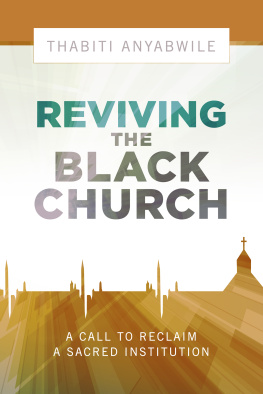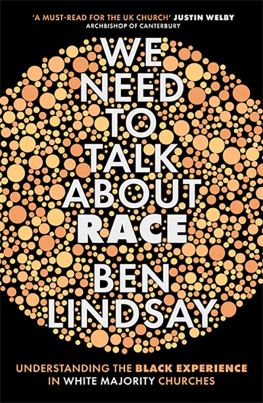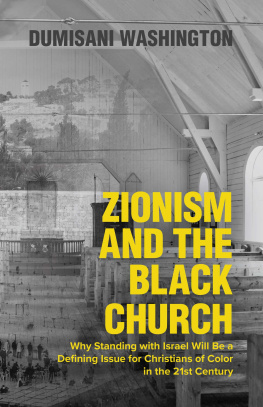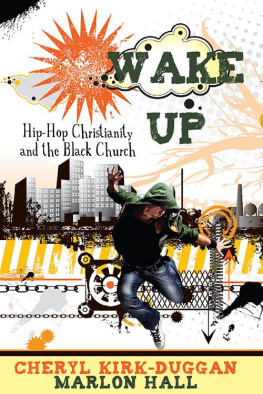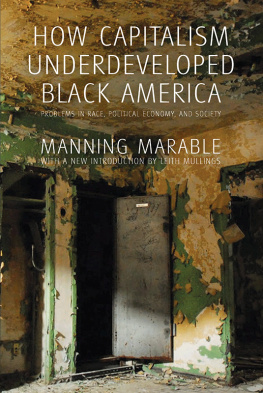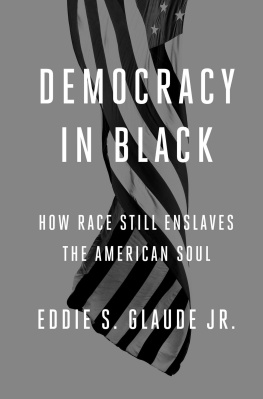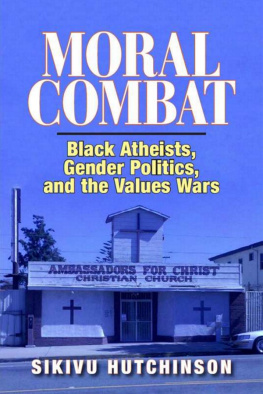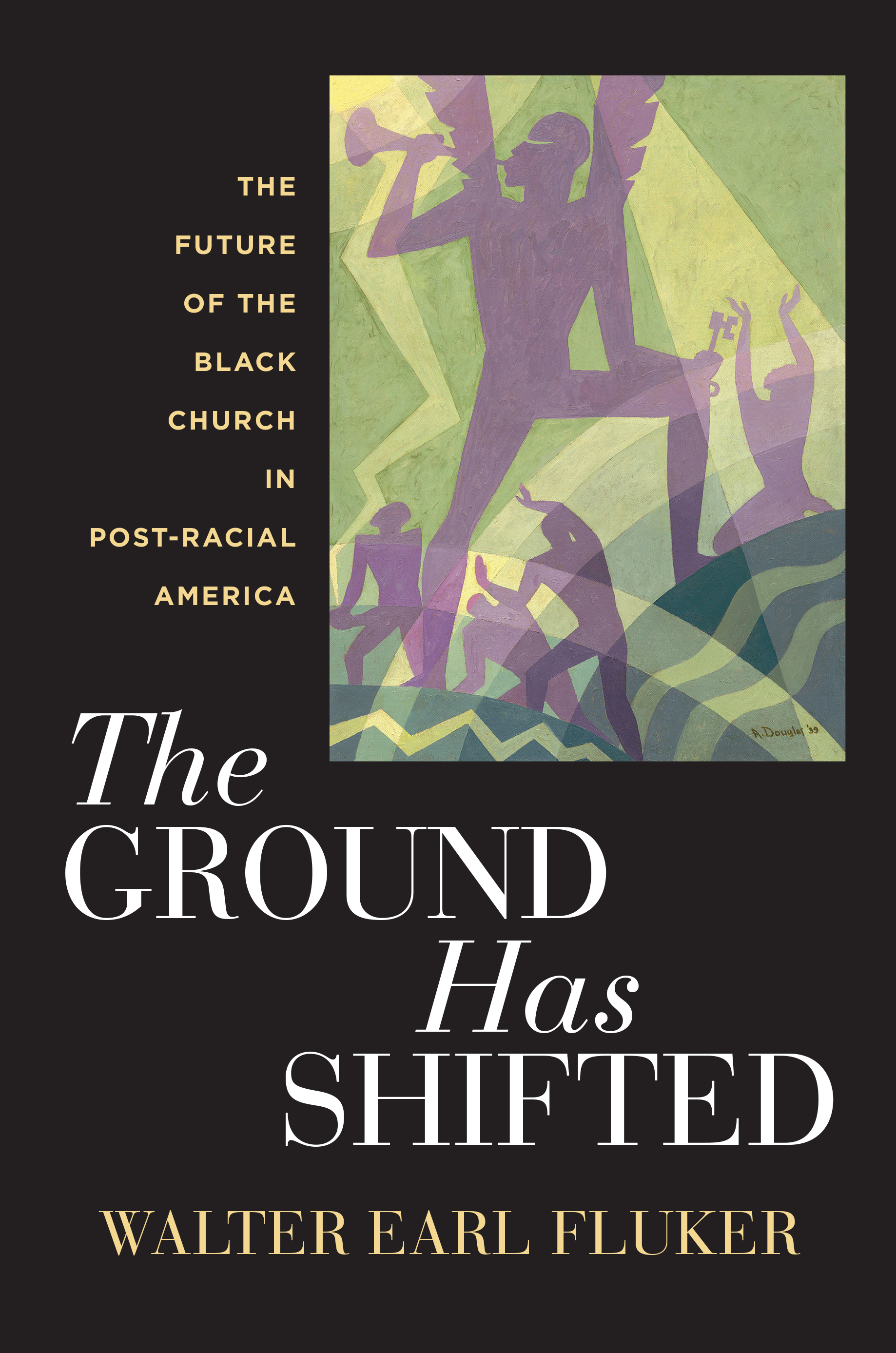
The Ground Has Shifted
Religion, Race, and Ethnicity
General Editor: Peter J. Paris
Beyond Christianity: African Americans in a New Thought Church
Darnise C. Martin
Deeper Shades of Purple: Womanism in Religion and Society
Edited by Stacey M. Floyd-Thomas
Daddy Grace: A Celebrity Preacher and His House of Prayer
Marie W. Dallam
The Methodist Unification: Christianity and the Politics of Race in the Jim Crow Era
Morris L. Davis
Watch This! The Ethics and Aesthetics of Black Televangelism
Jonathan L. Walton
American Muslim Women: Negotiating Race, Class, and Gender within the Ummah
Jamillah Karim
Embodiment and the New Shape of Black Theological Thought
Anthony B. Pinn
From Africa to America: Religion and Adaptation among Ghanaian Immigrants in New York
Moses O. Biney
Afro-Pentecostalism: Black Pentecostal and Charismatic Christianity in History and Culture
Edited by Amos Yong and Estrelda Y. Alexander
Creole Religions of the Caribbean: An Introduction from Vodou and Santera to Obeah and Espiritismo S ECOND E DITION
Margarite Fernndez Olmos and Lizabeth Paravisini-Gebert
The Divided Mind of the Black Church: Theology, Piety, and Public Witness
Raphael Gamaliel Warnock
Preaching on Wax: The Phonograph and the Shaping of Modern African American Religion
Lerone A. Martin
The Ground Has Shifted: The Future of the Black Church in Post-Racial America
Walter Earl Fluker
For a complete list of titles in the series, please visit the New York University Press website at www.nyupress.org.
The Ground Has Shifted
The Future of the Black Church in Post-Racial America
Walter Earl Fluker

NEW YORK UNIVERSITY PRESS
New York
NEW YORK UNIVERSITY PRESS
New York
www.nyupress.org
2016 by New York University
All rights reserved
References to Internet websites (URLs) were accurate at the time of writing. Neither the author nor New York University Press is responsible for URLs that may have expired or changed since the manuscript was prepared.
Library of Congress Cataloging-in-Publication Data
Names: Fluker, Walter E., 1951 author.
Title: The ground has shifted : the future of the Black church in post-racial America / Walter Earl Fluker.
Other titles: Religion, race, and ethnicity.
Description: New York : New York University Press, 2016. | Series: Religion, race, and ethnicity
Identifiers: LCCN 2016021209 | ISBN 978-1-4798-1038-3 (cl : alk. paper)
Subjects: LCSH : African American churches21st century. | Race relationsReligious aspectsChristianity. | Church and social problemsUnited States. | Post-racialism.
Classification: LCC BR563.N4 F58 2016 | DDC 277.3008996073dc23
LC record available at https://lccn.loc.gov/2016021209
New York University Press books are printed on acid-free paper, and their binding materials are chosen for strength and durability. We strive to use environmentally responsible suppliers and materials to the greatest extent possible in publishing our books.
Manufactured in the United States of America
10 9 8 7 6 5 4 3 2 1
Also available as an ebook
For my childrenClinton Rahman Fluker, Hampton Sterling Fluker, Tiffany Marie Henderson, Wendy Deneen Whitley, and Melvin Trs Watson
Contents
I have a lot of people to thank for their support throughout the writing of this book. I begin with Professor Peter J. Paris, who approached me about the project while he was serving as visiting professor at Boston University School of Theology from 2013 to 2015. At first, I was reluctant because of other outstanding projects that were staring me down, but no one can say no to Peter, with the exception of Adrienne, his beloved wife. He has been a colleague over the years and a dear friend who sticketh closer than a brother. As the series editor, Peter read the manuscript several times and offered excellent advice, which is reflected in these pages. Jennifer Hammer, my editor at New York University Press, has been a constant guide, prodder, encourager, and critic who inspired and challenged me to give a bit more and to find my voice. I owe her an incredible debt of gratitude.
Dean Mary Elizabeth Moore has been a gentle but enthusiastic supporter of my work since coming to Boston University School of Theology in the fall of 2010. I am thankful to her and all my colleagues at the School of Theology. I extend special thanks to Professors Courtney Goto, Pamela Lightsey, and Nimi Wariboko, who advised me or made contributions to my thinking at important junctures in my writing. The teaching fellows Onaje X. Woodbine, Kathryn House, and Derrick Muwina and my research assistant Julian Cook have done much of the nitty-gritty, behind-the-scenes work of finding correct citations and obscurely published documents that hopefully have added to the density and scope of the argument found in this text. I am also grateful to have a son who has chosen a scholarly path. Clinton R. Fluker has listened to and read portions of the book, especially chapter 7, and has offered observations that have kept me on the straight and narrow of black aesthetics and culture. Other scholars whom I acknowledge throughout have provided thoughtful commentary in places where I was treading on shallow ground, especially Herbert Marbury, associate professor of Hebrew Bible at Vanderbilt University; and Shively Smith, assistant professor of New Testament at Wesley Theological Seminary.
The idea for The Ground Has Shifted has been germinating for some time, but without the fellowship of colleagues and collaborators, it would not have seen the light of day. My good friend R. Drew Smith, professor of urban ministry at Pittsburgh Theological Seminary, invited me to co-keynote with Alan Boesak at a conference sponsored by the Transnational Roundtable on Religion, Race and Ethnicity in Johannesburg, South Africa, in 2011. The lecture was subsequently published as Shape-Shifting: Cultural Hauntings, Contested Post-Racialism, the Black Church and Theological Imagination in Contesting Post-Racialism: Conflicted Churches in the United States and South Africa, edited by R. Drew Smith, William Ackah, Anthony Reddie, and Rothney Tshaka (Jackson: University Press of Mississippi, 2015). The following year, 2012, the same organization invited me to keynote at the Birbeck College of London University, where the early seeds of my thinking on the Pentecostal symbolism of a scattered and scattering peoples were presented. In February 2014, I was invited to serve as the Distinguished Lecturer for the Paul Allen Lecture Series at McCormick Theological Seminary in Chicago. I presented two lectures that find form in the present text: Cultural Asylums and the Jungles Planted in Them: The Exilic Condition of African American Males in a Post-Industrial, Post-Modern World and Tools of the Spirit: Identity, Otherness, and Human Flourishing and the Exilic Condition of African American Males. I am indebted to these individuals and institutions and so many others who have exhorted, reproved, and rebuked my feeble attempts presented in this book. I bring what I have done back to all of you as an offering, a debt paid to you and to so many ancestors who crowd these pages.
I am also deeply indebted to Silvia Glick, managing editor of the Howard Thurman Papers Project, for her editing of the manuscript. Her careful eye and uncompromising standards have guided me throughout the writing and final production of the book. I am the senior editor and director of the Howard Thurman Papers Project at Boston University, and since Ive lived with this work for over twenty years, readers should not be surprised that Howard Thurman speaks often in this text. I have not attempted to quiet him downhe deserves our hearing.
Next page

